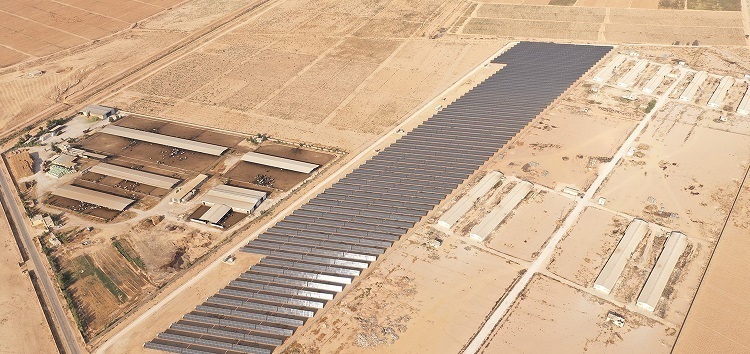
MDBs collective climate financing contributions set to hit $170 bn by 2030
The annual collective climate financing contributions from the group of multilateral development banks (MDBs) is ...

The European Bank for Reconstruction and Development (EBRD) and the German development finance institution (DEG) are providing Yellow Door Energy, a leading sustainable energy provider for businesses, with a 10.6 million loan in local currency for the development, construction and operation of a portfolio of eight solar photovoltaic (PV) plants in Jordan.
The EBRD local currency financing is complemented by a loan mobilized by the Bank of up to $ 5 million provided by the Global Environment Facility (GEF), a parallel $ 15.6 million senior loan in local currency from the DEG, the German development finance institution, and an equity contribution from Yellow Door Energy. Spain is also providing results-based payments of up to €1.5 million, as well as technical assistance together with the European Union.
The portfolio of plants will supply the entirety of the electricity generated to five private consumers: Umniah (telecommunications industry), Carrefour supermarkets, Safeway supermarkets and Taj Mall (retail industry) as well as Classic Fashion (garments manufacturing). In total, 48.3 MWp of renewable energy capacity will be added to Jordan’s power system, generating over 81 GWh of renewable electricity per year during the lifetime of the project. The plants are also expected to reduce CO2 emissions by more than 49,000 tons per year.
The project designed under an innovative structure aggregating the risks inherent to the construction and operating of commercial solar projects, is the largest portfolio of private-to-private renewable projects involving supply directly to the private sector under Jordan’s Wheeling Regulations. These regulations allow customers to establish and lease or own renewable energy plants and, if necessary, connect them to the transmission or distribution system at remote locations in order to generate power for their own consumption.
Lastly, the project has been registered with Verra’s Verified Carbon Standard (VCS), a leading global voluntary greenhouse gas (GHG) program and will benefit from support provided by Spain in the form of technical assistance to facilitate the establishment of a digitalized Monitoring, Reporting and Verification (D-MRV) system, and results-based payments to monetize its GHG emission reductions. Such emission savings will be monitored and reported through the advanced D-MRV system being developed by the EBRD that will enable efficient verification of climate impacts in an automated, transparent and robust way. It will showcase how digitalization and automation could facilitate scaling-up of project innovations under existing and emerging carbon market mechanisms and results-based climate finance instruments.
The annual collective climate financing contributions from the group of multilateral development banks (MDBs) is ...
Sweden pledges additional $19 million to the Loss and Damage Fund at the 29th United ...
New Chief Executive Officer (CEO) DHL Express in the Middle East and North Africa(MENA) Abdulaziz ...


اترك تعليقا